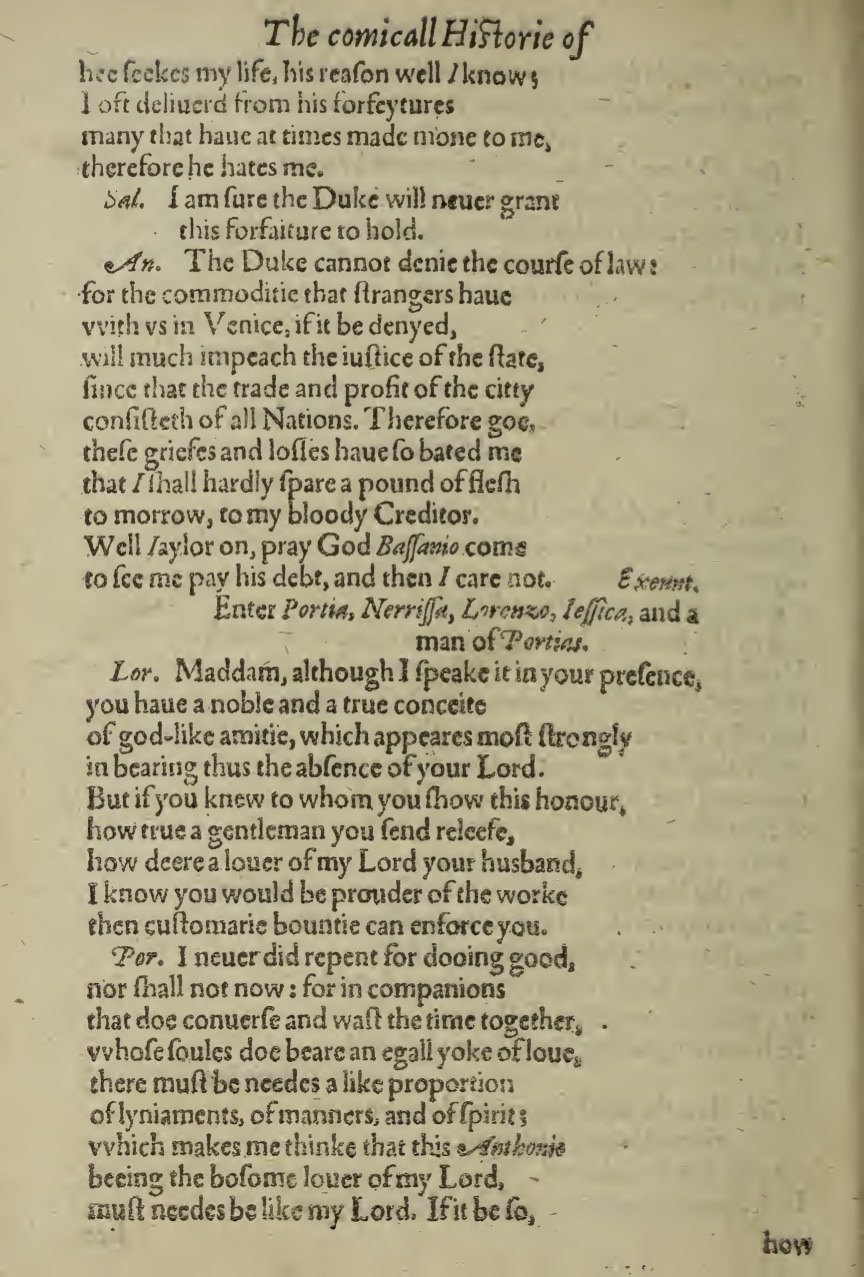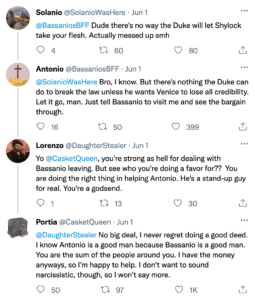Editorial note
The scene depicted, taken from The Merchant of Venice’s First Quarto, begins at the end of Act 3 Scene 3, in which Solanio is protesting Shylock’s demands for the arrest of Antonio, as Antonio was unable to pay his debt. The page carries over to Act 3 Scene 4, where Lorenzo assures Portia that she is sending aid to a worthy man in Antonio. Portia responds as the symbol of generous love and philanthropy; she expresses her trust in Bassanio’s character, stating that if he and Antonio are such close friends, Antonio must be of similar nature.
With the intention of foregrounding the social culture of the spread of information in The Merchant of Venice, we decided to modernize this text in the form of a Twitter (X) thread. Twitter tends to be a place where information spreads exponentially and personal bias seeps through. Users tend to utilize the platform to speak on other people’s behavior. Additionally, it is a platform that breeds conflict, as it is a politically charged echo chamber. Our intended audience is the modern reader familiar with Twitter culture, which we find parallels to the culture in The Merchant of Venice well. With the constant chain of new information spread, and schools of biased opinion, Twitter encapsulates the social climate portrayed in the play.
We chose to not preserve any of the original formatting, as this is a very modernized transcription. The italics, typeface and size shifts, and indentation would not fit into the “Tweet” model or language, so it is omitted. We regularized spellings and letters, and are choosing to not include many aspects of the original text, such as catchwords, stage directions, and the text verbatim, as we are heavily paraphrasing. Moreover, we will be expanding abbreviations. We are excluding the run-on text at the start of the page preceding Solanio's first line, which will be denoted by a footnote. Furthermore, any other unclear or missing text will have a footnote explaining the context.
Image credit: Rare Books & Manuscripts Department, Boston Public Library, copy G.176.16. The most excellent historie of the merchant of Venice. First Quarto. London: 1600.
Citing this page: Shakespeare, William. The Merchant of Venice, F4v. London: 1600. Cacodemon Digital Shakespeare. Edited by Rebecca Bailey and Valentina Gutierrez. Source edition: Rare Books & Manuscripts Department, Boston Public Library (copy G.176.16). http://cacodemonshakespeare.com/comedies/merchant/f4v.
Notes
- The beginning of the page, which is not pictured, is a segment of speech from Antonio in which he defends and justifies Shylock's hatred of him. This follows Antonio being held prisoner, due to Shylock's demands for what he is owed.
- Not seen is the exit of Antonio and Solanio before Lorenzo and Portia's dialogue. The two pairs do not converse together.

